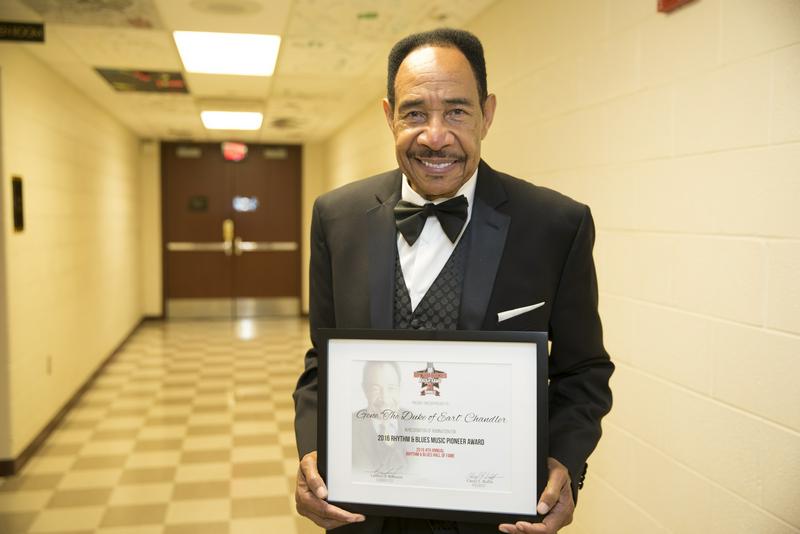Unforgettable Songs From The 1960s Era
By | October 2, 2018

The songs from the 1960s have affected us in many ways. Some were happy songs that lifted us up while others were sad songs that we could relate to. Other songs were just fun songs that entertained us.
Duke of Earl by Gene Chandler.
“Duke, Duke, Duke of Earl . . . nothing can stop the Duke of Earl . . . we’ll walk through my dukedom.”
Some crazy lyrics but a really fun song that became the number one song in 1962, both in Pop music as well as R&B music. It was one of Gene Chandler’s best-known songs. Written by Gene, along with Bernice Williams and Earl Edwards, it came about as part of a warm-up exercise by Chandler’s group “The Dukays.” They always did a warm-up by singing “Do – do – do” and one time they went a little farther with it and it became “du-du-du” and then “duke – duke – duke” until they finally came up the entire song. Gene Chandler’s name at that time was Eugene Dixon but then he changed his name to Gene Chandler. It is one of 500 songs that shaped Rock and Roll, according to the Rock and Roll Hall of Fame.

Stand By Me by Ben E. King “Whenever you’re in trouble, won’t you stand by me? . . .”
One of the favorites from the 1960s was “Stand by Me,” released in April of 1961, written and recorded by Ben E. King (with songwriters, Jerry Leiber and Mike Stoller), a song that was inspired by Sam Cooke. Sam Cooke had written a spiritual song called “Stand by Me Father” with the third line of the verse coming from Psalm 46:2-3. There have been over 400 versions of the song recorded by many artists. By 2012, an estimated $22.8 million in royalties has been earned from the song with 50 percent being paid to Ben E. King. That’s quite a take! In 2015, his original version was inducted into the National Recording Registry by the Library of Congress. This was just five weeks before his death.

R.E.S.P.E.C.T. by Aretha Franklin
“Hey baby (just a little bit) when you get home . . . Ain’t gonna do you wrong when you get home. . .”
The song, R.E.S.P.E.C.T., was actually written by Otis Redding, but Aretha Franklin recorded it as well and it was quite a successful hit. Aretha’s version was a little different from Otis’ version. She made it quite clear that a woman should be respected, and that she knows and has everything that her man wants, but only with respect. Others like Diana Ross and the Supremes, along with the Temptations, preferred Aretha’s version over Otis Redding’s version. Part of what made her version different was the expression “TCB” which meant taking care of business, later becoming Elvis Presley’s motto and signature. Unlike, Aretha’s version, Otis’ version is more about a man looking for respect, after he comes home from a hard day’s work, and “gives her all his money.” It’s like a male/female tug-of-war over who should have the power – but it is a great song!

Stop! In the Name of Love by The Supremes
“Stop! In the name of love, Before you break my heart. Think it over, Think it over . . .”
Another really fun song was this song that was released in February of 1965, by the Supremes, under the Motown label. As the number one hit on the Billboard Pop singles chart, and number two on the soul chart, it was nominated for the 1966 Grammy Award for Best Contemporary Rock and Roll Group Vocal Performance. The choreography for the song, which included the hand gestures, was taught to them by Paul Williams and Melvin Franklin of the Temptations, backstage in London, before their first televised appearance. La Toya Jackson also recorded the song for her own album in 1995.

When a Man Loves a Woman by Percy Sledge
“When a man loves a woman . . . she can do no wrong . . . he’d give up all his comforts”
First recorded in 1966, by Percy Sledge in Sheffield, Alabama, this song made the number one single on Billboard Hot 100 and R&B charts. Bette Midler recorded it in 1980, with a top 40 hit, and Michael Bolton recorded it in 1991 with his version, which made number one on both Billboard Hot 100 and Billboard Adult Contemporary Singles Charts. Michael Bolton also received a Grammy Award for his version of the song. It was the seventh song in history, that was recorded by multiple artists, to top the Hot 100. Both Percy Sledge and Michael Bolton made this an awesome addition to many fans’ music collection!

Lonely Teardrops by Jackie Wilson
“My heart is crying, crying, Lonely Teardrops, my pillow’s never dry . . .”
Although this song was originally released in 1958, Jackie Wilson made it popular through the 1960s and beyond with his theatrical performance on stage. He essentially paved the way for Elvis Presley and others with his moves and groovy style of dancing. Unfortunately, he ultimately collapsed on stage in September of 1975 while performing for Dick Clark’s Oldies Tour. He had a heart attack and went into a coma, which lasted nine years until his death in 1984. Even the lyrics of this song indicated his heart attack “my heart is crying?” Maybe he should have paid more attention to the words he was singing. So many fans loved his performances though. They would get all excited and scream for him just the Elvis fans did.
The musicians from the 1960s gave us some great entertainment and those who have passed, for whatever reason, are certainly missed but we still enjoy their music to this day.
